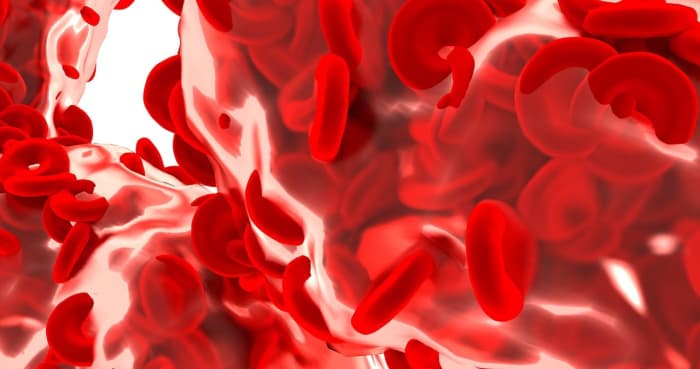A tale of the yo-yo hemoglobin…or…A good deed thwarted
I signed up to donate blood this week. When I got there, they were quite busy and short-staffed. As I was waiting, I started to get a little frustrated, then I reminded myself that I was doing a good deed and that the person that would receive my blood would be having a lot harder day than I was. Finally they called me back for my health check. Temperature: good. Blood pressure: good. Hemoglobin: too low. I left with two pin pricks…one in each middle finger…but no blood donation.

This is the second time in six months that my hemoglobin has been too low to donate, although I’ve had several normal readings in between. The advice the nurse gave me was to eat more red meat (I already eat more than is typically recommended)…eat more spinach (I go through about 5 cups a week)…eat more nuts (almonds are my go-to snack)…eat multigrain bread with seeds (you guessed it, that’s my bread of choice)…or take a daily vitamin supplement.
I’m not keen on taking an iron supplement if I don’t really need it, so I decided it’s time to do some hemoglobin research. Here’s what I found. (Please keep in mind that I am not a doctor, nor do I have any medical training. Everything I’m sharing here came from websites that I find trustworthy, and I have included those sources.)
What is hemoglobin?
According to the National Institute of Health, hemoglobin is the protein contained in red blood cells that is responsible for delivery of oxygen to the tissues. A low hemoglobin level indicates anemia. An erythrocytosis is the consequence of too many red cells or hemoglobin levels above normal. The normal level for adult males is 14 to 18 g/dl and for adult females is 12 to 16 g/dl.
Should I be concerned about a low hemoglobin level?
According to the Mayo Clinic, it’s possible to have a hemoglobin count that’s fine for you but doesn’t meet the standards blood donation centers set. If your level is slightly below the requirement, you’ve tested normal in the past, and you don’t have any symptoms, there is probably no need for concern. Just wait a few weeks and try again. Hemoglobin count may vary due to time of day, how well-hydrated you are, and altitude.
If you are suffering any of the following symptoms, schedule an appointment with your physician:
- Fatigue
- Weakness
- Pale skin and gums
- Shortness of breath
- A fast or irregular heartbeat
Should I be concerned about a high hemoglobin level?
According to the Cleveland Clinic, you should take high hemoglobin levels seriously. Sometimes, high hemoglobin points to a serious underlying condition. Even if you don’t have an underlying condition, irregularly high hemoglobin levels can lead to complications such as blood clots.
Symptoms of a high hemoglobin level include the following:
- Dizziness
- Easy bruising or bleeding
- Excessive sweating (hyperhidrosis)
- Fatigue
- Headaches
- Joint swelling
- Unexplained weight loss
- Yellowish eyes or skin
Lessons learned
- My hemoglobin level was actually at the low end of normal (11.9 first stick and 12.1 the second time), just not high enough to permit a blood donation (12.5). I will continue to eat the healthy foods recommended and hold off on taking an iron supplement unless I see a downward trend or my doctor suggests I need one.
- Sometimes your best intentions go awry. It’s the thought that counts…unless you are actually in need of my blood, in which case my good intentions are of no help to you at all. I will reschedule my blood donation and eat a big, juicy steak the night before!
Your turn
- Do you know your hemoglobin level? What about your blood type?
- Have you or anyone you know ever been on the receiving end of a blood donation?
- What else is on your mind? Anything at all; I just love hearing from you.
Image by Narupon Promvichai from Pixabay







Do you know your hemoglobin level? I do not.
What about your blood type? I don’t know. I’ve asked and been told it’s not on my medical chart.
Have you or anyone you know ever been on the receiving end of a blood donation? No
What else is on your mind? How is it that your blog is on Bloglovin’ when [I thought] it was no longer around? I used to be there but got an email telling me it was over.
Interesting about Bloglovin, Ally. I never got that email, and when I checked last week, it was still there. I tried today, and got an error saying their servers were over capacity and certain pages may be temporarily unavailable, but they would be back shortly. I will have to keep an eye on that. Thanks for the heads up.
Hi Christie – I think it’s really interesting how one thing leads to another, which can then lead to another. I randomly asked for my thryroid levels to be checked when I had a routine blood test a while back…..turns out my parathyroid levels were a bit high……which led to another test down the track……levels much higher……which led to a specialist and scans……and next it will be an op to have a gland removed. On top of that, the CT scan showed some “centrilobular emphysematous changes” which I’m also going to follow up on with my GP – to see if by some miracle they’re what’s been causing my persistant cough for the last goodness knows how many years – imagine if that got fixed as a result of all of this!
Modern medicine is so amazing – but good eating, exercise and a healthy attitude to life make a huge difference – especially in the early stages of things like low iron etc. Hopefully you’ll be donating again down the track.
It is interesting, Leanne. My husband was losing the ability to open his right hand, and it turns out it all stemmed from pinched nerves in his neck. When they suggested an MRI of his neck, we thought that was crazy, but they knew what they were talking about. Three surgeries and countless hours of PT later, he is finally starting to recover some of the lost function. I guess all our body systems are interconnected, so one thing definitely leads to another. I’m glad you made that original thyroid request, and wish you luck that the final result may be the resolution of your chronic cough.
Hi Christie, I don’t know my hemoglobin levels, but I do know my blood type. Thanks for sharing why this is important. I’ll make a point to ask about that at my next checkup. I don’t give blood anymore, so thank you for doing your part.
So many interesting things going on in our bodies without us even thinking about them. The human body really is pretty amazing.
I don’t know my hemoglobin level, but I have been severely anaemic in the past. Not due to my diet but to blood loss. I am a boring O+, but my daughter is B+, so she had a touch of jaundice when she was born. My mother is O- meaning she & my father have rhesus incompatibility, which caused problems when one of my sisters were born, such that they had a group of US marines standing by in case of blood transfusions (her godmother was a US Navy nurse). My mother was also transfused after surgery, and had an allergic reaction to it. No idea if that was due to the rhesus situation or not.
For a long time I wasn’t able to donate blood as I’ve taken anti-malaria medication for so many years. I should check whether that is still the case.
I’m glad your anemia is in the past, Debs, and hope it stays there. I also have B+ blood. I always remember because when I was a child I looked at it as B-plus and thought it wasn’t bad but a step down from A! 😂 That is interesting about your mother and her childbirth experience. Thank you for sharing. Modern medicine is pretty amazing, isn’t it?